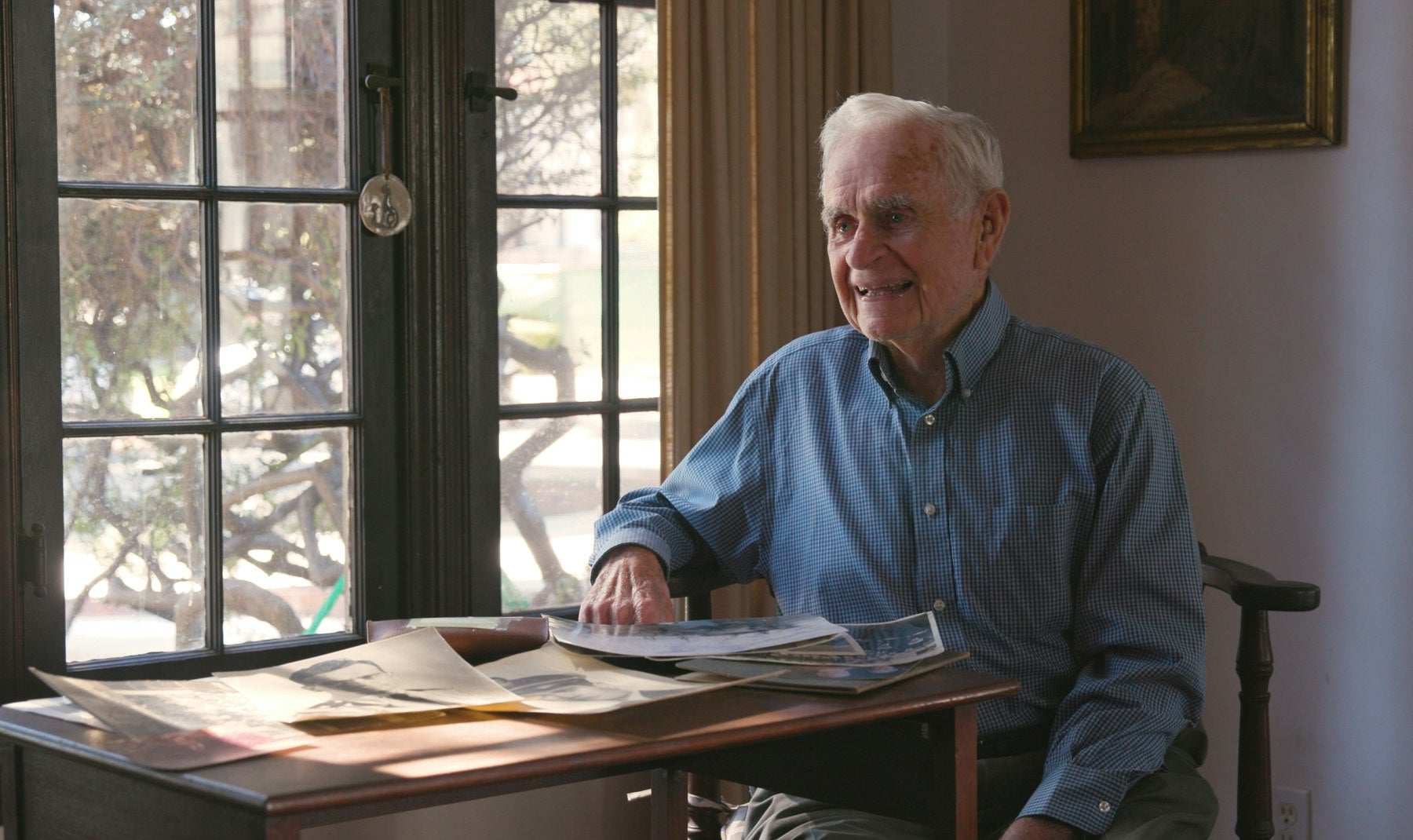A Message from Tina Christie, UCLA Wasserman Dean This week brought sad news to the UCLA School of Education and…
A Message from Tina Christie, UCLA Wasserman Dean
This week brought sad news to the UCLA School of Education and Information Studies with the passing of our beloved professor emeritus of education, John Donald McNeil, at age 101. Professor McNeil began his career at UCLA in 1956 heading the UCLA Teacher Education Program – and until just last week, John could be found working in his office in Moore Hall. He was known for passing by the elevator and taking the stairs to his third-floor office, even at age 100. Since 2016, John had been co-teaching a course on international development and entrepreneurial philanthropy with Octavio Pescador in which UCLA undergraduates worked on projects to address issues in underserved communities, including health, the environment and reducing inequality. He was truly a bright light for all of us. Our work will long be inspired and lifted by the amazing community service legacy John has created here at UCLA. Please take the opportunity to share a memory or story about John on the Tribute page we have created to honor him. When we can come together again in person in the Fall, we will gather to celebrate his life.
John McNeil’s commitment to our most undeserved communities and his UCLA leadership in this area for more than six decades is now one of the hallmarks of our work at UCLA’s School of Education and Information Studies. It’s this strong commitment to equity leadership that has made our Information Studies Department an internationally-recognized leader in the iSchools movement. In archival studies, Associate Professor Michelle Caswell is working with our IS graduate students to explore ways that archives document, shape and create access to the histories of marginalized communities. And for our Education Department, this strong focus on equity leadership is part of the reason that we were recently ranked as the #1 public Education program in the nation.
During this past week, many of our Education faculty and graduate students participated in the American Education Research Association (AERA) annual conference – the nation’s leading forum for sharing critical research and new scholarship. This year’s AERA conference theme was “Accepting Educational Responsibility,” which is aligned with our School’s scholarship and on-the-ground educational equity work. Congratulations from our entire community to Professors Sylvia Hurtado and Cecilia Rios-Aguilar for being invited to give two of the most prestigious annual lectures at AERA. Education Professor Sylvia Hurtado’s 2021 AERA Distinguished Lecture, “The Inevitability of Racial Bias and Exclusion: Implications for Identity-Based Education” is based on her career-long research of campus racial climates, the trajectories of pathways of underrepresented students in scientific research and professional careers, and student and institutional outcomes of diverse and broad access institutions in higher education. Associate Dean for Equity, Diversity and Inclusion Cecilia Rios-Aguilar’s Wallace Foundation Lecture “Research as Resistencia: Studying Community Colleges as Sites of Hope, Possibilities, and Transformation through a Systems/Funds of Knowledge Approach” is centered on her work researching community colleges and a focus on what can be done to change practice in classrooms and to make classrooms the center point of efforts to better serve low-income and racially and ethnically minoritized students. “I think research can be used as a form of resistance and I view community colleges as sites of hope, possibility, and transformation,” Rios-Aguilar said.
Also this week, a new study was released by the UCLA Center for the Transformation of Schools at UCLA Ed&IS, focusing on Black students in Los Angeles County: “Beyond the Schoolhouse: Digging Deeper – COVID-19 & Re-opening Schools for Black Students in Los Angeles.” The research makes clear that a disproportionate number of Black children in Los Angeles County reside in neighborhoods where poverty is concentrated, educational enrichment opportunities are limited, environmental hazards are severe, and resources are lacking. The work that CTS is doing continues to shine a light on the educational inequalities in our systems, and pathways forward.
I thank you for being part of such an inspirational community focused on creating equitable opportunities for all our young people. As we turn the corner of the pandemic, and can see the day where we come together in person, I hope that you continue to be healthy and safe.
Christina “Tina” Christie
UCLA Wasserman Dean of Education and Information Studies
